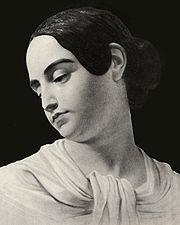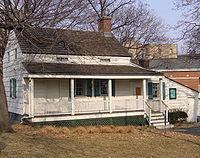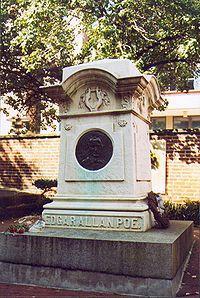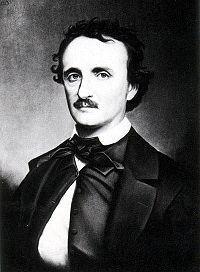Complete Stories And Poems Of Edgar Allan Poe (168 page)
Read Complete Stories And Poems Of Edgar Allan Poe Online
Authors: Edgar Allan Poe
Tags: #Mystery, #Fantasy, #Horror, #Collections, #Poetry, #Classic

Poe finally was discharged on April 15, 1829, after securing a replacement to finish his enlisted term for him. Before entering West Point, Poe moved back to Baltimore for a time, to stay with his widowed aunt Maria Clemm, her daughter, Virginia Eliza Clemm (Poe’s first cousin), his brother Henry, and his invalid grandmother Elizabeth Cairnes Poe. Meanwhile, Poe published his second book,
Al Aaraaf, Tamerlane and Minor Poems
, in Baltimore in 1829.
Poe traveled to West Point and matriculated as a cadet on July 1, 1830. In October 1830, John Allan married his second wife, Louisa Patterson. The marriage, and bitter quarrels with Poe over the children born to Allan out of affairs, led to the foster father finally disowning Poe. Poe decided to leave West Point by purposely getting court-martialed. On February 8, 1831, he was tried for gross neglect of duty and disobedience of orders for refusing to attend formations, classes, or church. Poe tactically pled not guilty to induce dismissal, knowing he would be found guilty.
He left for New York in February 1831, and released a third volume of poems, simply titled
Poems.
The book was financed with help from his fellow cadets at West Point, many of whom donated 75 cents to the cause, raising a total of $170. They may have been expecting verses similar to the satirical ones Poe had been writing about commanding officers. Printed by Elam Bliss of New York, it was labeled as “Second Edition” and included a page saying, “To the U.S. Corps of Cadets this volume is respectfully dedicated.” The book once again reprinted the long poems “Tamerlane” and “Al Aaraaf” but also six previously unpublished poems including early versions of “To Helen”, “Israfel”, and “The City in the Sea”. He returned to Baltimore, to his aunt, brother and cousin, in March 1831. His elder brother Henry, who had been in ill health in part due to problems with alcoholism, died on August 1, 1831.
Publishing career
After his brother’s death, Poe began more earnest attempts to start his career as a writer. He chose a difficult time in American publishing to do so. He was the first well-known American to try to live by writing alone and was hampered by the lack of an international copyright law. Publishers often pirated copies of British works rather than paying for new work by Americans. The industry was also particularly hurt by the Panic of 1837. Despite a booming growth in American periodicals around this time period, fueled in part by new technology, many did not last beyond a few issues and publishers often refused to pay their writers or paid them much later than they promised. Poe, throughout his attempts at pursuing a successful literary career, would be forced to constantly make humiliating pleas for money and other assistance for the rest of his life.

Poe married his 13-year old cousin, Virginia Clemm. Her early death may have inspired some of his writing.
After his early attempts at poetry, Poe had turned his attention to prose. He placed a few stories with a Philadelphia publication and began work on his only drama,
Politian
. The
Saturday Visitor
, a Baltimore paper, awarded Poe a prize in October 1833 for his short story “MS. Found in a Bottle”. The story brought him to the attention of John P. Kennedy, a Baltimorian of considerable means. He helped Poe place some of his stories, and introduced him to Thomas W. White, editor of the
Southern Literary Messenger
in Richmond. Poe became assistant editor of the periodical in August 1835; however, within a few weeks, he was discharged after being found drunk repeatedly. Returning to Baltimore, Poe secretly married Virginia, his cousin, on September 22, 1835. She was 13 at the time, though she is listed on the marriage certificate as being 21. Reinstated by White after promising good behavior, Poe went back to Richmond with Virginia and her mother. He remained at the
Messenger
until January 1837. During this period, Poe claimed that its circulation increased from 700 to 3,500. He published several poems, book reviews, critiques, and stories in the paper. On May 16, 1836, he had a second wedding ceremony in Richmond with Virginia Clemm, this time in public.
The Narrative of Arthur Gordon Pym of Nantucket
was published and widely reviewed in 1838. In the summer of 1839, Poe became assistant editor of
Burton’s Gentleman’s Magazine
. He published numerous articles, stories, and reviews, enhancing his reputation as a trenchant critic that he had established at the
Southern Literary Messenger
. Also in 1839, the collection
Tales of the Grotesque and Arabesque
was published in two volumes, though he made little money off of it and it received mixed reviews. Poe left
Burton’s
after about a year and found a position as assistant at
Graham’s Magazine
.
In June 1840, Poe published a prospectus announcing his intentions to start his own journal,
The Stylus
. Originally, Poe intended to call the journal
The Penn
, as it would have been based in Philadelphia, Pennsylvania. In the June 6, 1840 issue of Philadelphia’s
Saturday Evening Post
, Poe bought advertising space for his prospectus:
“Prospectus of the Penn Magazine, a Monthly Literary journal to be edited and published in the city of Philadelphia by Edgar A. Poe.”
The journal would never be produced before Poe’s death. Around this time, he attempted to secure a position with the Tyler administration, claiming he was a member of the Whig Party. He hoped to be appointed to the Custom House in Philadelphia with help from President Tyler’s son Robert, an acquaintance of Poe’s friend Frederick Thomas. Poe failed to show up for a meeting with Thomas to discuss the appointment in mid-September 1842, claiming to be sick, though Thomas believed he was drunk. Though he was promised an appointment, all positions were filled by others.

Poe spent the last few years of his life in a small cottage in the Bronx, New York.
One evening in January 1842, Virginia showed the first signs of consumption, now known as tuberculosis, while singing and playing the piano. Poe described it as breaking a blood vessel in her throat. She only partially recovered. Poe began to drink more heavily under the stress of Virginia’s illness. He left
Graham’s
and attempted to find a new position, for a time angling for a government post. He returned to New York, where he worked briefly at the
Evening Mirror
before becoming editor of the
Broadway Journal
and, later, sole owner. There he alienated himself from other writers by publicly accusing Henry Wadsworth Longfellow of plagiarism, though Longfellow never responded. On January 29, 1845, his poem “The Raven” appeared in the
Evening Mirror
and became a popular sensation. Though it made Poe a household name almost instantly, he was paid only $9 for its publication.
The
Broadway Journal
failed in 1846. Poe moved to a cottage in the Fordham section of The Bronx, New York. That home, known today as the “Poe Cottage”, is on the southeast corner of the Grand Concourse and Kingsbridge Road. Virginia died there on January 30, 1847. Biographers and critics often suggest Poe’s frequent theme of the “death of a beautiful woman” stems from the repeated loss of women throughout his life, including his wife.
Increasingly unstable after his wife’s death, Poe attempted to court the poet Sarah Helen Whitman, who lived in Providence, Rhode Island. Their engagement failed, purportedly because of Poe’s drinking and erratic behavior. However, there is also strong evidence that Whitman’s mother intervened and did much to derail their relationship. Poe then returned to Richmond and resumed a relationship with a childhood sweetheart, Sarah Elmira Royster.

Edgar Allan Poe is buried in Baltimore, Maryland. The circumstances and cause of his death remain uncertain.
On October 3, 1849, Poe was found on the streets of Baltimore delirious, “in great distress, and.. in need of immediate assistance”, according to the man who found him, Joseph W. Walker. He was taken to the Washington College Hospital, where he died on Sunday, October 7, 1849, at 5:00 in the morning. Poe was never coherent long enough to explain how he came to be in his dire condition, and, oddly, was wearing clothes that were not his own. Poe is said to have repeatedly called out the name “Reynolds” on the night before his death, though it is unclear to whom he was referring. Some sources say Poe’s final words were “Lord help my poor soul.” All medical records, including his death certificate, have been lost. Newspapers at the time reported Poe’s death as “congestion of the brain” or “cerebral inflammation”, common euphemisms for deaths from disreputable causes such as alcoholism. However, the actual cause of death remains a mystery; from as early as 1872, cooping was commonly believed to have been the cause, and speculation has included
delirium tremens
, heart disease, epilepsy, syphilis, meningeal inflammation, cholera and rabies.
Griswold’s “Memoir”
The day Edgar Allan Poe was buried, a long obituary appeared in the
New York Tribune
signed “Ludwig”. It was soon published throughout the country. The piece began, “Edgar Allan Poe is dead. He died in Baltimore the day before yesterday. This announcement will startle many, but few will be grieved by it.” “Ludwig” was soon identified as Rufus Wilmot Griswold, an editor, critic and anthologist who had borne a grudge against Poe since 1842. Griswold somehow became Poe’s literary executor and attempted to destroy his enemy’s reputation after his death.
Rufus Griswold wrote a biographical article of Poe called “Memoir of the Author”, which he included in an 1850 volume of the collected works. Griswold depicted Poe as a depraved, drunk, drug-addled madman and included Poe’s letters as evidence. Many of his claims were either outright lies or distorted half-truths. For example, it is now known that Poe was not a drug addict. Griswold’s book was denounced by those who knew Poe well, but it became a popularly accepted one. This occurred in part because it was the only full biography available and was widely reprinted and in part because readers thrilled at the thought of reading works by an “evil” man. Letters that Griswold presented as proof of this depiction of Poe were later revealed as forgeries.

